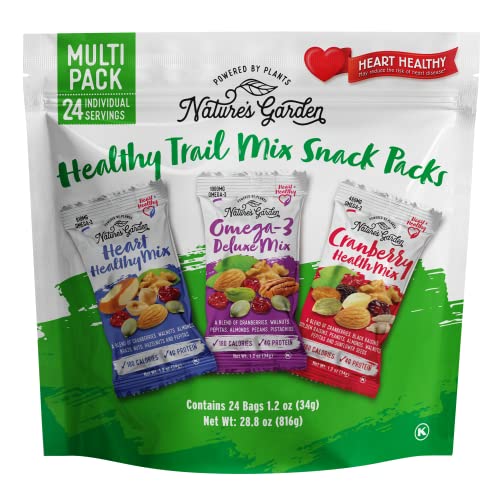When it comes to snacking, parents often find themselves weighing the pros and cons of various options. Nut snacks have gained popularity as a healthy choice, but are they truly good for kids? I’ve often wondered about the benefits and potential concerns surrounding nuts in children’s diets.
Overview of Nut Snacks
Nut snacks offer a variety of health benefits for kids. Nuts are rich in essential nutrients like protein, healthy fats, vitamins, and minerals. Almonds, walnuts, and pistachios, for example, provide significant amounts of vitamin E, magnesium, and fiber. These nutrients play a vital role in children’s growth and development.
Nut snacks also support brain health. Omega-3 fatty acids, found in walnuts, contribute to cognitive function and memory. Kids benefit from healthier brain development when they consume these nuts regularly. A handful of mixed nuts can be a tasty and nutritious choice for after-school snacking or lunchbox inclusion.
While nut snacks carry numerous advantages, some concerns exist. Allergies pose a significant risk for a portion of the population, making it crucial to prioritize safety. Parents should consult with pediatricians before introducing nuts, especially if their children have a history of allergies. For kids without allergies, moderation is key. Offering a variety of nut snacks, including unsalted and unflavored options, encourages balanced eating while reducing the risk of excessive calorie intake.
Incorporating nut snacks into a child’s diet is simple. Snack bars, trail mix, or roasted nuts become delicious on-the-go options. Kids enjoy experimenting with different combinations, which can foster a fun snacking experience. Overall, nut snacks present a healthy alternative for children when enjoyed safely and in moderation.
Nutritional Benefits of Nut Snacks
Nut snacks offer exciting nutritional benefits that align perfectly with keeping kids healthy. Packed with essential nutrients, they provide vital support for growth and development.
Essential Nutrients for Growth
Nuts like almonds, walnuts, and pistachios deliver essential vitamins and minerals. For example, almonds contain vitamin E, which helps support the immune system. Walnuts are rich in omega-3 fatty acids, crucial for brain development. Nuts also supply magnesium and fiber, promoting digestion and overall well-being. Including a variety of nuts ensures kids get a broad spectrum of nutrients, enhancing their growth potential.
Healthy Fats and Energy
Nuts are excellent sources of healthy fats, providing energy that’s both nutritious and satisfying. Monounsaturated fats found in nuts support heart health and can keep kids energized throughout the day. Incorporating nuts as snacks can help maintain stable energy levels, ideal for active children. For a tasty twist, try mixing nuts with dried fruits or yogurt for a balanced snack that delights the taste buds while fueling their activities.
Potential Risks of Nut Snacks
While nut snacks provide various nutritional benefits, some potential risks warrant consideration.
Allergies and Intolerances
Nut allergies affect approximately 1-2% of children, making it crucial to recognize potential reactions, especially in those with a family history. Symptoms can range from mild hives or stomach upset to severe anaphylaxis, which requires immediate medical attention. I always advise parents to consult a pediatrician before introducing nuts, particularly for children with existing allergies or intolerances. Besides direct allergies, cross-reactivity can occur with other allergens, like soy or tree pollen, complicating matters further.
Portion Control and Overconsumption
Nut snacks, while nutritious, are calorie-dense and can lead to overconsumption if not monitored. For instance, a handful of nuts typically contains around 150-200 calories, which adds up quickly during snacking. I recommend introducing appropriate portion sizes, such as an ounce or about a small handful, to help manage caloric intake. Teaching kids to snack mindfully helps them enjoy these healthy options without exceeding daily calorie needs.
Recommendations for Incorporating Nut Snacks
I love finding ways to incorporate nut snacks into kids’ diets. Nuts pack a powerful nutritional punch and can be enjoyed in various fun and age-appropriate forms. As a healthy snack enthusiast, I focus on making nut snacks enjoyable and safe for children.
Age-Appropriate Snack Ideas
- For Toddlers (1-3 years): Offer finely chopped or ground nuts mixed into yogurt or oatmeal. Nut butter on whole-grain toast adds great flavor, too.
- For Preschoolers (4-5 years): Provide small pieces of soft nuts or nut butter on apple slices, bananas, or whole-grain crackers.
- For School-Aged Kids (6-12 years): Create trail mix using whole nuts, dried fruits, and seeds. Consider nut bars or homemade energy bites for a nutritious grab-and-go option.
- For Teens (13+ years): Encourage them to sprinkle nuts on salads or blend nut butter into smoothies for an added protein boost.
Tips for Safe Consumption
- Monitor Allergies: Always check firsthand for any allergies, especially in children with a family history of nut allergies. Introduce nuts gradually in safe environments.
- Portion Control: Limit servings to about an ounce, roughly a small handful. This helps manage calorie intake while ensuring nutritious benefits.
- Mindful Snacking: Teach kids to listen to their hunger cues. Encouraging them to enjoy snacks mindfully fosters healthy eating habits and prevents overeating.
- Storage and Selection: Store nuts in airtight containers to maintain freshness. Choose unsalted and unflavored options whenever possible to reduce added sugar and sodium.
By incorporating these ideas and tips, kids can enjoy nut snacks while reaping their many health benefits.
Conclusion
Nut snacks can be a fantastic addition to kids’ diets when approached thoughtfully. They pack a punch of nutrients that support growth and energy. I love the idea of mixing them with fruits or yogurt for a tasty treat that kids will enjoy.
Of course it’s essential to be cautious about allergies and portion sizes. By introducing nuts mindfully and ensuring kids understand moderation, we can help them develop healthy snacking habits. With so many delicious ways to incorporate nuts into meals and snacks, it’s easy to keep things fun and nutritious.









